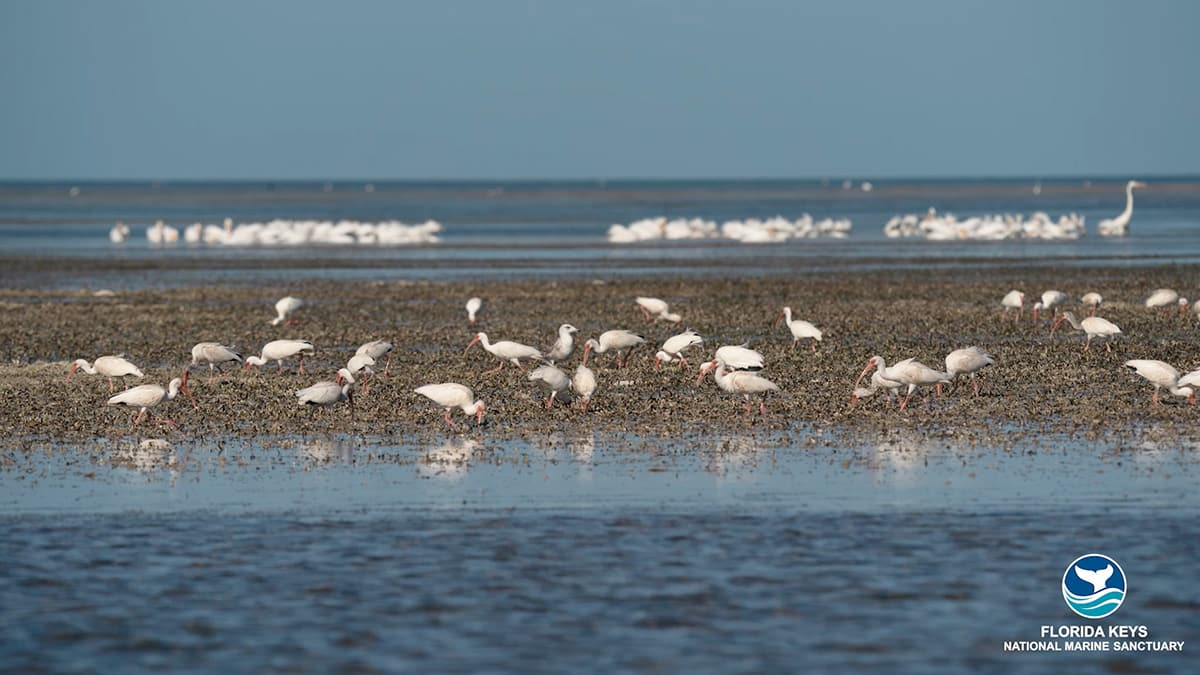A Proposal For Restoring
Florida Keys National Marine Sanctuary
We are all part of the solution

The clear, blue and turquoise waters of Florida Keys National Marine Sanctuary contain part of the only coral barrier reef in the continental United States, the largest documented contiguous seagrass community in the Northern Hemisphere, mangrove-fringed shorelines, hard-bottom habitat, sand and mud flats, and an array of submerged historical and cultural resources. Each of the components of the 3,800 square-mile sanctuary are ecologically connected, requiring a comprehensive plan for restoring and managing the resources within these waters both individually and cohesively.
In response to public concerns about threats facing the Florida Keys marine environment, NOAA conducted the first comprehensive review of the management plan, zoning plan, and regulations for Florida Keys National Marine Sanctuary, since 1997. This is a multi-step public process. The end goal is to build back the ecosystem's resilience so it can better withstand the elements that caused these declines—hurricanes, diseases, vessel groundings, rising ocean temperatures, pollution, and human interactions.
Phase I of this process included a formal notice of intent and public comment scoping period which transitioned into Phase II, a more in-depth Sanctuary Advisory Council and community working group input process.
Phase III, called the draft environmental impact statement, included a 5-month public comment period that ended January 31, 2020.
Phase IV distilled public feedback into a single proposal called the Notice of Proposed Rulemaking (referred to as the "proposed rule"), which was available for a 100-day public comment period. The proposed rule and draft management plan, jointly called the Restoration Blueprint, was developed from cutting-edge science, technical expertise, and public comments. This review is the next step in the public process. During the 100-day comment period for the Restoration Blueprint, the public was invited to provide input about the future of their Florida Keys National Marine Sanctuary.
The proposed rule and revised draft management plan are available below in the supporting materials section. In addition, several informational products are available to provide details on the proposed changes and what they mean.
Phase V includes the final environmental impact statement, to be followed soon by the final rule and final management plan.
The health of sanctuary habitats has a profound effect on our economy and our unique way of life in the Keys. Meeting the challenges of the future will take dedication, passion, and engagement from each of us. Let's work together to ensure its survival.
Supporting Materials
Videos
Watch these videos to learn more about the purpose of different marine zones and proposed changes under the Restoration Blueprint for Florida Keys National Marine Sanctuary.
Thank You for Your Input
For 100 days from July to October, 2022, NOAA solicited feedback on the latest iteration of Restoration Blueprint, receiving more than 5,000 comments. These are now part of the public record and available for review.
The map below reflects the 2022 proposed rule, and is not associated with the 2024 final environmental impact statement.





